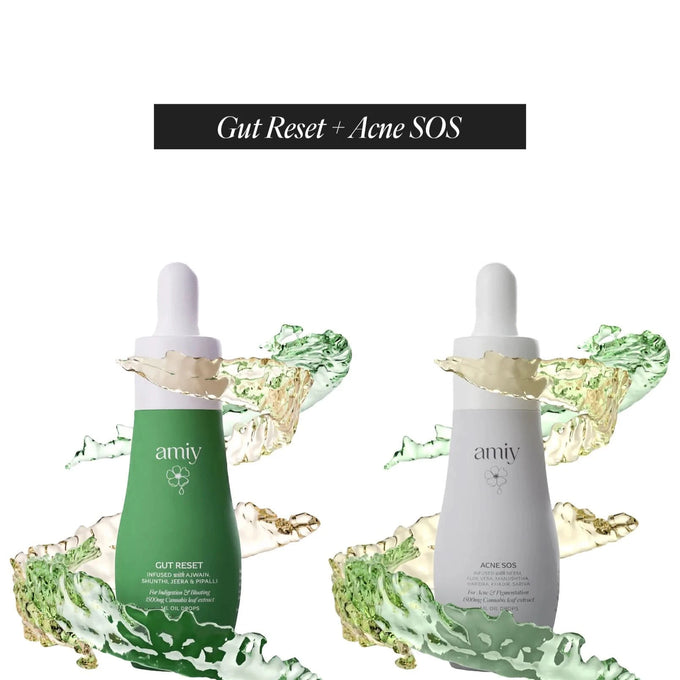





Discover effective acne management tips to achieve clearer, healthier-looking skin. Learn causes, treatments, diet changes, skincare routines, and self-care practices for embracing skin inclusivity.
In a world that's increasingly celebrating diverse forms of beauty, embracing your skin's uniqueness is more important than ever. One common skin concern that many of us grapple with is acne. It doesn't discriminate by age, gender, or skin type, but it's also something that can be managed effectively. Let's dive into the world of acne, understand what causes it, and explore some practical tips for acne management that can help you achieve clearer, healthier-looking skin. period pacifier
Before we delve into the strategies for managing acne, it's essential to know what causes those stubborn breakouts. Acne typically occurs when hair follicles become clogged with oil and dead skin cells. This can lead to the formation of whiteheads, blackheads, pimples, or even more severe forms like cysts and nodules. Hormones, genetics, and lifestyle factors like diet and stress all play a role in acne development.
If you're someone who deals with acne, fear not, because there are several practical changes you can make to your daily life and skincare routine that can help prevent breakouts and promote clearer skin. Let's explore these tips together:
The cornerstone of acne prevention is maintaining clean skin. Make it a habit to wash your face twice a day and after sweating. Doing so helps remove excess oil, dead skin cells, and impurities that can clog your pores. Use your fingertips and a gentle cleanser to wash your face, avoiding harsh materials like washcloths or scrubs that can irritate your skin.
What you eat can significantly impact your skin's health. Some foods, particularly those high in sugars and processed carbohydrates, can contribute to acne breakouts. These foods tend to raise insulin levels and cause inflammation, both of which are known to exacerbate acne.
To reduce the risk of breakouts, limit your consumption of high-glycemic foods like white bread, rice, french fries, soda, and donuts. Instead, focus on a diet rich in whole foods such as vegetables and whole grains while minimizing ultra-processed options.
Consider adjusting your dietary fat intake for improved acne management. Saturated fats can promote inflammation, whereas omega-3 fatty acids have anti-inflammatory properties. Some studies suggest that incorporating regular omega-3 fatty acids into your diet can help improve acne in certain individuals. To achieve this, reduce your consumption of saturated fats found in animal products like red meat and full-fat dairy. Instead, increase your intake of omega-3 fatty acids by consuming more fish, nuts, and seeds. Not only will this benefit your skin, but it's also known to support heart, eye, and brain health. tranquil tonic
For some people, consuming cow's milk can trigger acne flare-ups. Although not everyone experiences this, it's worth exploring if dairy may be contributing to your breakouts. Several studies have suggested a link between milk consumption and increased acne risk, possibly due to the hormones present in milk that can lead to inflammation. If you suspect that dairy may be the culprit behind your acne, consider going dairy-free for a couple of weeks to see if it makes a difference.
Stress is a well-known factor that can worsen acne. When you're stressed, your body responds by producing more oil, a leading cause of acne. To keep your stress levels in check, consider adopting simple yet effective relaxation techniques:
It may seem counterintuitive, but even acne-prone skin needs proper moisturization. Dry skin can lead to irritation, potentially increasing the risk of breakouts. If you have dry skin, select a moisturizer that is non-comedogenic (won't clog pores) and apply it twice a day immediately after washing your face. Avoid products that may dry out your skin, such as astringents or alcohol-based formulations.
One of the simplest yet most effective tips to prevent acne is to keep your hands off your face. Touching your face can transfer oil, dirt, and contaminants from your fingers to your skin, worsening existing acne or triggering new breakouts. Additionally, avoid picking at your skin, including the temptation to pop pimples, as this can lead to scarring and prolonged healing.
When dealing with acne-prone skin, incorporating acne-fighting washes into your skincare routine can be beneficial. Look for products containing ingredients like benzoyl peroxide or salicylic acid, which are known for their acne-treating and preventive properties. Find a product that suits your skin type and use it once or twice a day as directed. For additional support in reducing acne and scars, you can also try Acne Ayurvedic CBD oil oral drops into your routine. acne sos
It's perfectly fine to wear makeup if you have acne-prone skin; the key is choosing the right products and using them sparingly. Opt for makeup labeled as non-comedogenic or oil-free, which are less likely to clog pores. Regularly clean your makeup brushes and refrain from sharing them with others. At the end of the day, make sure to remove makeup with a gentle cleanser before bedtime. muscle mercy
.
Regular physical activity offers numerous benefits for your skin and overall health. Exercise helps regulate blood sugar levels, preventing insulin spikes that can contribute to acne breakouts. Moreover, it reduces stress and promotes better sleep, both of which are vital for skin health. If you sweat during exercise, aim to wash your skin as soon as possible to prevent sweat-triggered acne.
Beyond skincare and dietary changes, adopting certain attitudes and practices can further enhance your journey to acne management. Here are some additional aspects to consider:
Identify your core values and personal needs. Recognize that your skin's appearance doesn't define your worth or identity.
Openly discuss your acne concerns with loved ones or a healthcare professional to seek support and guidance.
Don't let acne hinder your self-confidence. Embrace your skin's uniqueness, and remember that you're beautiful just the way you are.
Sharing your acne journey with others can be therapeutic and may help you discover helpful tips and solutions.
Practice mindfulness techniques to manage stress and anxiety effectively. Techniques like meditation and deep breathing can be particularly beneficial. gut reset
Above all, practice self-love and self-acceptance. Your worth is not determined by the appearance of your skin.
Acne is a common skin condition that affects people of all ages, and managing breakouts can be challenging. However, with the right approach, you can take significant steps toward clearer, healthier-looking skin. Remember, your skin is unique and beautiful, and managing acne is just one aspect of your overall well-being. Embrace your skin inclusively, and let your inner beauty shine through.
All posts